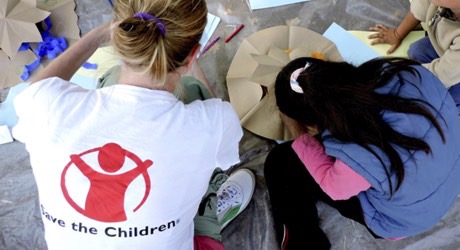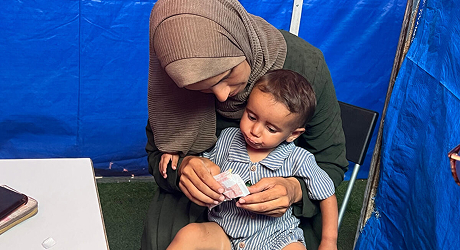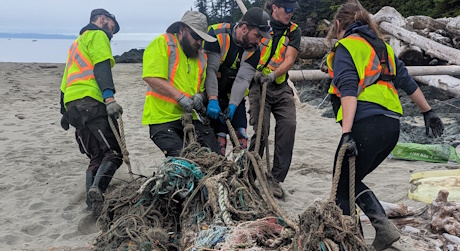Footprints Project
Since 2005, travelers like you have helped us change the world through micro-donations.

-
A total of
6471
Travelers
-
donated
$22823
(101% funded) -
to help improve
Health
-
impacting
50
people -
in
Australia
Project Background
The scale and destruction of the 2019-2020 bushfires was unprecedented in Australia. Tens of thousands of children were affected by the fires, which burned through almost 19 million hectares since July 2019. In any crisis, children are always the most vulnerable. More than half of those affected by emergencies are children, and crises can severely affect both their physical safety and emotional wellbeing.
During the bushfires, chilredn have experienced leaving their homes and treasured possessions behind, driving in convoy through fire-affected areas and having to stay in countless evacuation centres until they find somewhere to settle safely. The added loss of farms, homes, pets and stock animals can cause great distress for children, who often struggle in the aftermath of disaster in expressing and processing their feelings and emotions.
Experiencing a disaster of this nature can have a harrowing long-term impact on a child’s emotional wellbeing –especially if they are not provided with the right support to process what they’ve been through in the days, weeks and months following a disaster. Studies have shown that without early intervention, children experiencing trauma may experience negative developmental effects that impact educational and functional outcomes later in life.?
Key Project Activities
Save the Children worked with families and schools to ensure children who have been most heavily impacted by the bushfires have the long-term recovery support they need to process what they’ve experienced, mitigating lifelong impacts.
Our bushfire recovery program, Journey of Hope, operated in fire-affected schools across NSW and VIC. Journey of Hope helps children understand, process and express their feelings and emotions, mitigating long term impacts to their mental health.
The key objectives of Journey of Hope include supporting children to:
- understand and normalise emotions associated with traumatic stress
- develop positive coping strategies to deal with these emotions
- build on their innate strengths and that of their families, schools and communities to further develop positive coping mechanisms
- cultivate a sense of hope, empowering them to feel more in control over stressors.
- build on their innate strengths and that of their families, schools and communities to further develop positive coping mechanisms
- cultivate a sense of hope, empowering them to feel more in control over stressors.
Journey of Hope-trained mental health workers delivered the program in small group settings, supporting 8-10 students from three age categories (5-7 years, 8-10 years, and 11-13 years) in eight one-hour sessions, twice a week for a month. Supporting materials were also provided to parents, caregivers and teachers to help them look after themselves so they can provide better support for children in their care.
Key Project Outcomes
The generosity of Footprints donors supported Save the Children to deliver Journey of Hope to 5,043 children in 84 schools across Victoria and New South Wales. Schools where the program was delivered were some of the areas hit hardest by the bushfires and the students who participated were identified as being at a high risk of experiencing short- and long-term impacts on their wellbeing.
A survey of students was completed to report on the impact of Journey of Hope, with the results showing the program was very effective at helping students express their emotions in a healthy way and improve their self-confidence and mental health.

Community Involvement
Community involvement was essential to the success of the program, as we worked in partnership with the Department of Education to ensure the program was able to fit into the curriculum. Implementation also required the support of schools and teachers as well as parents enrolling their children to participate. The communities involved embraced the program and were delighted with the impact it had on their children, such as this parent from East Gippsland:
“I have two children with very different needs, who both really changed through their experience of the Journey of Hope program at their school. My eldest deals with high anxiety and low self-esteem. She was previously unwilling to engage in any supports to assist with these but has now said ‘[the facilitators] taught me that asking for help is a strong thing’, so we are now accessing different therapies and she is moving ahead in leaps and bounds! My youngest plays independently a lot, and I smile when he role-plays strategies with his toys!”
What's next?
Journey of Hope is designed as an intensive program to be delivered over a short period for the largest impact. Save the Children has finished delivering the program in response to the 2019/20 bushfires; however, we continue to work in many of these areas delivering a variety of programs focused on providing access to quality education as well as continuing to support the mental health and wellbeing of children.
Due to the ongoing success of the program, Save the Children is also continuing to deliver Journey of hope where it is needed, including communities that were heavily impacted by flooding in 2021 and 2022.
Traveling soon? When you buy travel insurance with us, you can make a contribution towards a cause you care about.
Get a quote




